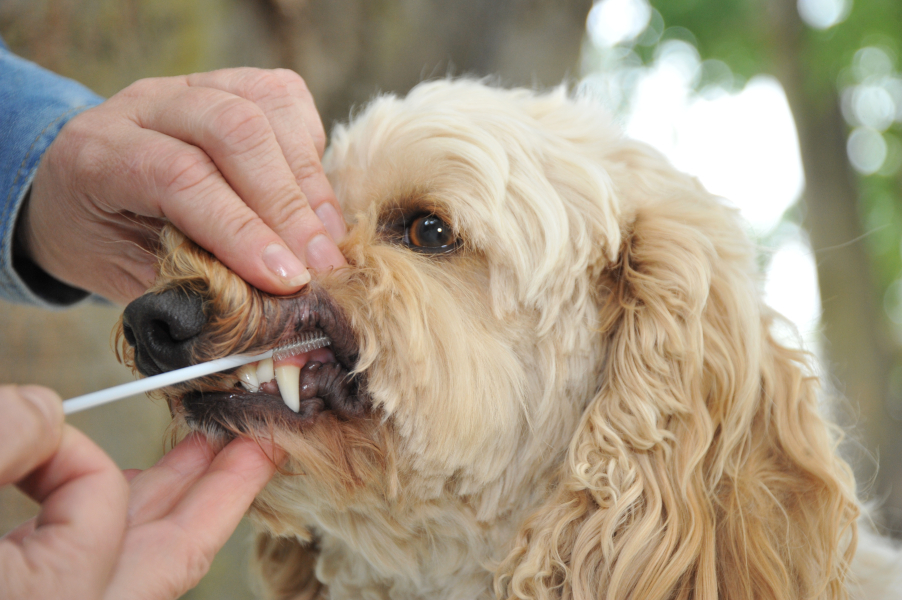Quick Summary
Click here for Price and Turnaround Time
Phenotype: Alaskan Husky encephalopathy is an inherited fatal neurological disorder characterized by seizures, trouble walking, a high stepping gait, trouble eating, and visual problems.
Mode of Inheritance: Autosomal recessive
Alleles: N = Normal/Unaffected, AHE = Alaskan Husky encephalopathy
Breeds appropriate for testing: Alaskan Husky
Explanation of Results:
- Dogs with N/N genotype will not have Alaskan Husky encephalopathy and cannot transmit this Alaskan Husky encephalopathy variant to their offspring.
- Dogs with N/AHE genotype will not have Alaskan Husky encephalopathy, but are carriers. They will transmit this Alaskan Husky encephalopathy variant to 50% of their offspring. Matings between two carriers are predicted to produce 25% Alaskan Husky encephalopathy-affected puppies.
- Dogs with AHE/AHE genotype will have Alaskan Husky encephalopathy with a variable age of onset of neurological symptoms.
Sample Collection
Dog DNA tests are carried out using cells brushed from your dog's cheeks and gums. The preferred cytology brushes are sent to you by mail, or you may provide your own brushes. For accepted alternative brushes, click here
We recommend waiting until puppies are at least three weeks old before testing.

Step-By-Step:
- Make sure the dog has not had anything to eat or drink for at least 1 hour prior to collecting sample.
- When swabbing puppies, isolate each puppy from the mother, littermates and any shared toys for 1 hour prior to swabbing. Puppies should not have nursed or eaten for 1 hour prior to collecting sample.
- If collecting samples from more than one dog, make sure to sample one dog at a time and wash your hands before swabbing another dog.
- Label brush sleeve with name or ID of dog to be sampled.
- Open brush sleeve by arrow and remove one brush by its handle.
- Place bristle head between the dog’s gums and cheek and press lightly on the outside of the cheek while rubbing or rotating the brush back and forth for 15 seconds.
- Wave the brush in the air for 20 seconds to air dry.
- Insert brush back into sleeve.
- Repeat steps 5 - 8 for each unused brush in sleeve on a fresh area of cheek and gums. Make sure to use and return all brushes sent by the VGL. In most cases, it will be 3 brushes per dog. If using interdental gum brushes, please note that the VGL requires 4 brushes per dog and only moderate or wide interdental gum brushes are accepted.
- Do not seal brushes in sleeve.
- Place all samples in an envelope and return to the address provided.
ATTENTION:
- Do not collect saliva/drool – the key to obtaining a good sample is getting cheek cells on the swab
- Do not rub swab on the dog’s tongue or teeth – this will result in poor quality sample
- Do not collect a sample from a puppy that has recently nursed – the mother’s genetic material can rub off on the puppy’s mouth and contaminate the sample
Alaskan Husky Encephalopathy (AHE) is a brain disease affecting Alaskan Husky dogs. The disease usually affects juvenile and young adult males and females, and often multiple dogs from the same litter. The disease is eventually fatal, although some dogs may live for months to years before the signs progress. Signs of AHE include seizures, trouble walking, a high stepping gait, trouble eating, and visual problems. AHE is inherited as a simple autosomal recessive trait.
The mutation responsible for AHE, SLC19A3 (c.624 insTTGC, c.625 C>A), results in a shortened form of the protein. The disease potentially can occur in any breed, but is most commonly found in the Alaskan Husky. A DNA test for the specific AHE mutation is now available that can determine if dogs are normal, or if they carry one or two copies of the defective gene. Dogs that carry two copies of the mutation are affected and expected to develop neurological problems.
Testing for AHE is important in assisting clinicians, owners, and breeders in identifying affected and carrier dogs. Breeders can use results from the tests as a tool for selection of mating pairs to avoid producing affected dogs.
